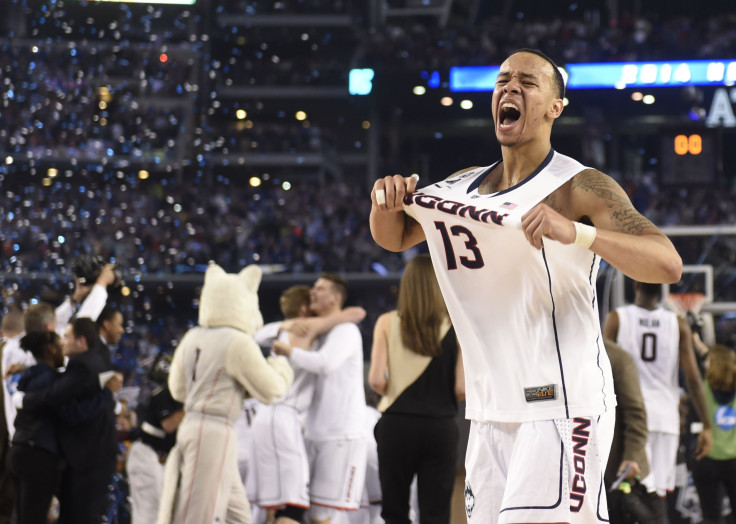Judge Rules Against NCAA. Allowing Student Athletes A Share Of Profits

A federal judge ruled Friday that the National Collegiate Athletic Association (NCAA) must forfeit control of rights to college athletes’ names, pictures and likenesses. It's a landmark decision that will allow student athletes to profit from television appearances, sales of their jerseys and other sources of income.
Former UCLA college basketball star Ed O’Bannon sued the NCAA in an effort to end the NCAA’s control, which required athletes to sign a waiver that relinquished the right to own their likenesses in any form if they want to commit to playing for an NCAA university. That meant students could not be paid for the revenues they generated for schools.
U.S. District Court judge Claudia Wilken, for the Northern District of California, wrote in the 99-page ruling that “the challenged NCAA rules unreasonably restrain trade in the market for certain educational and athletic opportunities offered by NCAA Division I schools.”
The court found that the NCAA cannot enforce “any rules or bylaws that would prohibit its member schools and conferences from offering their FBS football or Division I basketball recruits a limited share of the revenues generated from the use of their names, images, and likenesses in addition to a full grant-in-aid."
It’s a significant, but not total, loss for the NCAA.
The organization’s chief legal officer, Donald Remy, said in a statement that the NCAA does not believe its rules violated antitrust laws, though for now that legal question has been settled by the court. Remy added, “We note that the Court’s decision sets limits on compensation.”
The NCAA could appeal. The pay regulations will not take effect until the start of the next recruiting cycle, July 1, 2016.
© Copyright IBTimes 2024. All rights reserved.












